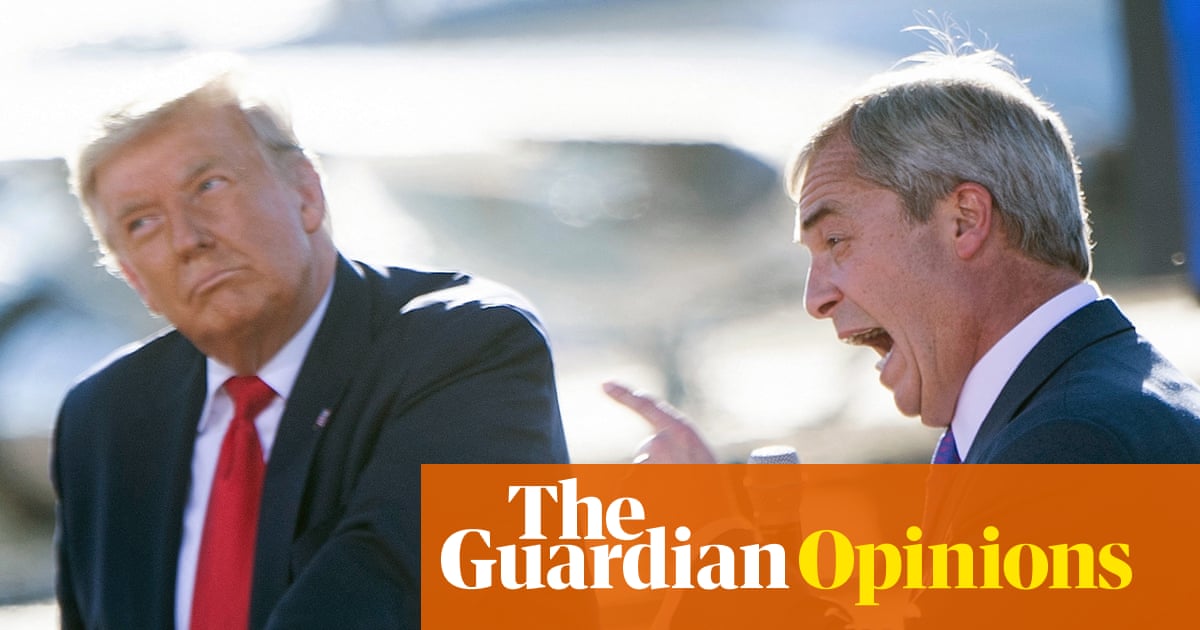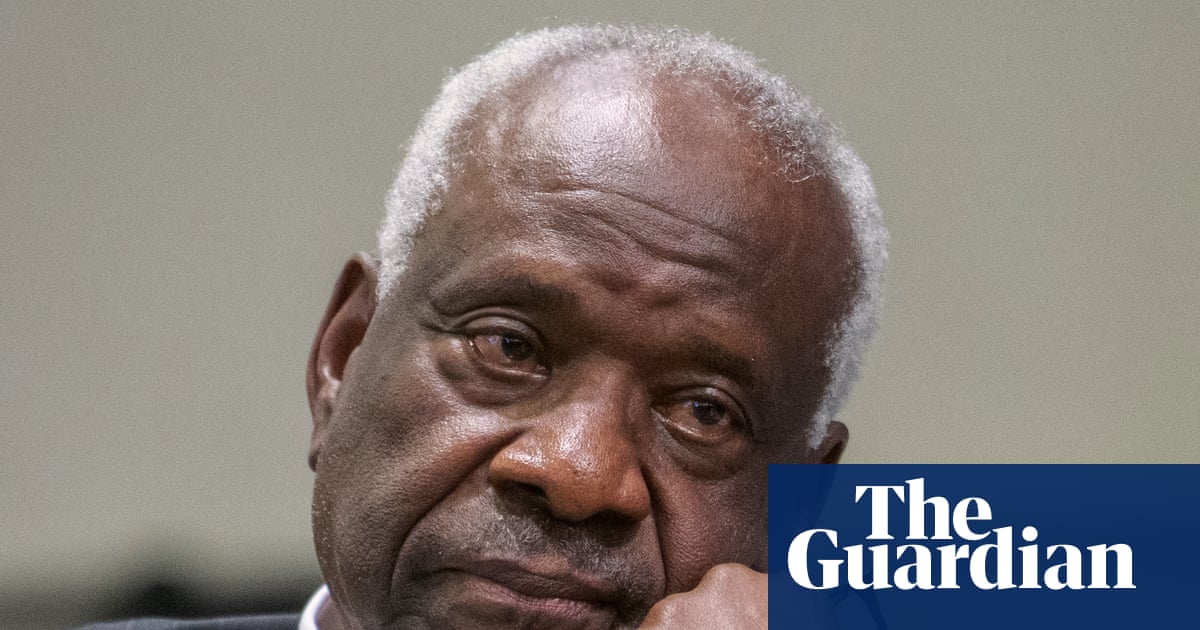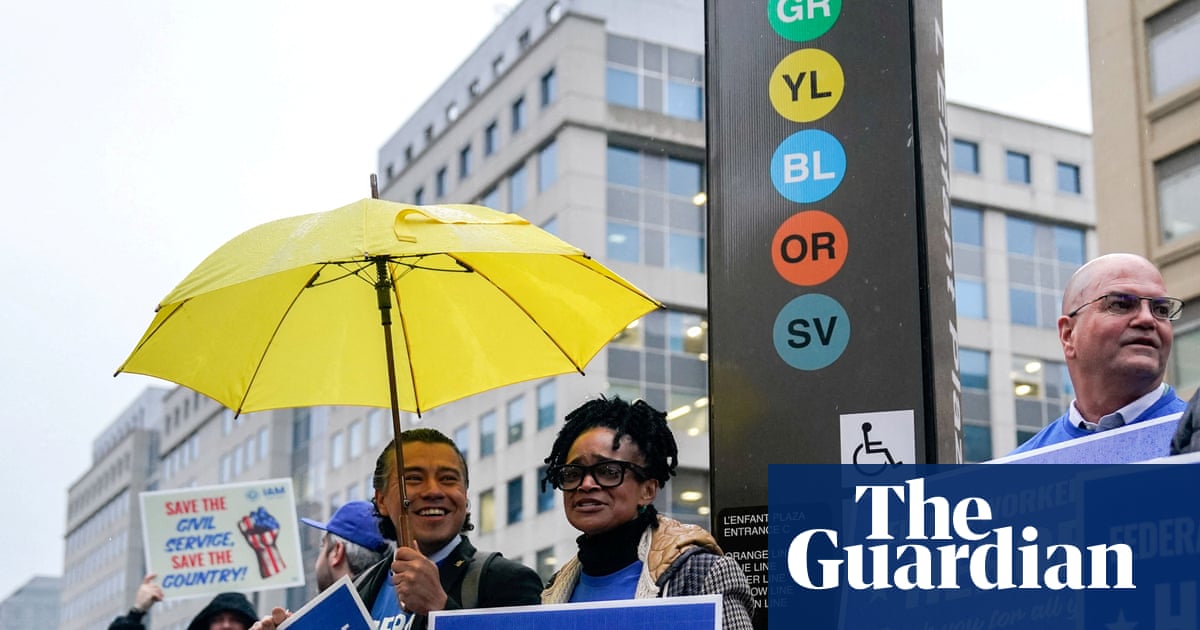“We’re backing him 100%, we think he’s done a fantastic job. Like us, he inherited a mess.” Donald Trump gave his enthusiastic endorsement to Javier Milei’s radical economic experiment, when the pair met in New York last week.
The US has declared itself ready to offer more than rhetorical support to the chainsaw-wielding Argentine president in the coming days, as Buenos Aires stands on the brink of a fresh financial crisis.
US Treasury secretary Scott Bessent said the US was “ready to do what is needed”. He suggested the Federal Reserve could offer Buenos Aires a $20bn (£15bn) dollar swap line – a crucial crisis-fighting tool – or the US could even buy the country’s bonds directly.
US administrations have rallied support for Argentine governments in the past – Bill Clinton was a fan of Carlos Menem’s 1990s reforms, for example. But Trump’s readiness to wade in directly is the latest example of his determination to use economic tools for political ends: in this case, propping up an ideological ally.
Milei swept into power two years ago, on a wave of frustration and discontent with the economic status quo.
Like Trump and Boris Johnson, he eschewed all the usual conventions of politics and promised to smash up the establishment and remake the state on behalf of the people.
But while Milei’s political playbook may echo Trump’s, with its embrace of chaos and showbiz, his economic policies owe something to another radical with big hair – Margaret Thatcher, whom the Argentine president has called, “brilliant”.
Like the Thatcher governments in the UK, Milei sees slaying the dragon of inflation as an overriding priority. The challenge in Argentina is on a completely different scale to 1980s Britain: the inflation rate peaked at more than 25% a month soon after Milei came to power.
But aspects of his approach, including a systematic onslaught on trade union rights, public spending cuts and a wave of privatisations, have echoes of Thatcherism.
Despite lacking a parliamentary power base, Milei has succeeded in cutting deep into pensions and public sector wages – and more than 48,000 public sector workers have lost their jobs.
He travelled to CPAC, the Conservative Political Action Conference, in the US, to pose on stage next to a chainsaw-wielding Elon Musk, whose Department of Government Efficiency (Doge) was partly inspired by Milei’s aggressive style.
Argentina’s tough policies have won plaudits from the International Monetary Fund (IMF), which granted a new $20bn lifeline to Argentina in April.
On stage at the IMF’s Spring meetings in Washington that month, managing director general Kristalina Georgieva proudly pinned on to her green jacket a tiny silver chainsaw badge, handed to her by Argentina’s minister for deregulation, Federico Sturzenegger.
But while Milei’s “shock therapy” may have met approval in Washington – and indeed in financial markets – Argentine economist and campaigner Lucía Cirmi Obón highlights its human impact.
“The macroeconomic changes implemented by Milei have not shown – nor do I believe they will show – any positive impact on people’s quality of life. In practice, what we are seeing is an economic recession,” she told the Guardian.
“The main reasons are that real wages fell, and the opening of imports also dismantled a large part of national industry. On top of that, there were cuts to the number of people receiving a pension, support for childcare, for people with disabilities who used to receive pensions. All of the policies the population used to receive from the state have been reduced.”
after newsletter promotion
Unemployment has risen, by 2 percentage points; but she argues that there is also significant hidden unemployment – with former factory workers crowding into poorly paid gig economy jobs such as Uber driving, for example. Household debt is rising; and because many of the occupations targeted by cuts are female-dominated, the gender pay gap has widened, undoing six years’ worth of progress.
Obón adds that while Milei’s approach was meant to unleash the corporate sector, to open the way for surging economic growth, investment as a share of GDP has actually fallen.
Meanwhile, determined to squash inflation, Milei has maintained the peso’s link to the dollar – a trigger for so many crises in Argentina over the years.
For several decades, the peso has been pegged – within limits – to the greenback, which circulates within Argentina as an alternative currency, in which many citizens like to hold their savings, especially in times of trouble.
Milei had advocated full dollarisation during the election campaign – a policy that would leave Argentina without the right to set its own interest rates. When he came to power and allies rejected that plan, he instead devalued the peso by more than half, willing to wear the resulting inflation in the hope of stimulating exports.
But the currency has nevertheless come under continued selling pressure – exacerbated by the political uncertainty unleashed when Milei suffered a disastrous showing in local legislative elections in Buenos Aires province, which he had himself dubbed a “life or death battle”.
Since those local elections, and amid a mounting clamour of corruption claims against Milei’s powerful sister Karina, the peso sell-off had accelerated. The central bank burned through more than $1bn of reserves in a week trying to prop up the currency, before Bessent announced Washington was ready to step in.
As well as political fellow feeling, some experts suggest geopolitics may have been another motivation for Washington’s intervention, with China becoming increasingly influential in Latin America.
The peso rallied and the markets calmed after Bessent’s comments; but as the costs of “shock therapy” bite and Milei facing crucial midterm elections in October, the Argentine public face a volatile period ahead.

 German (DE)
German (DE)  English (US)
English (US)  Spanish (ES)
Spanish (ES)  French (FR)
French (FR)  Hindi (IN)
Hindi (IN)  Italian (IT)
Italian (IT)  Russian (RU)
Russian (RU)  3 hours ago
3 hours ago























Comments